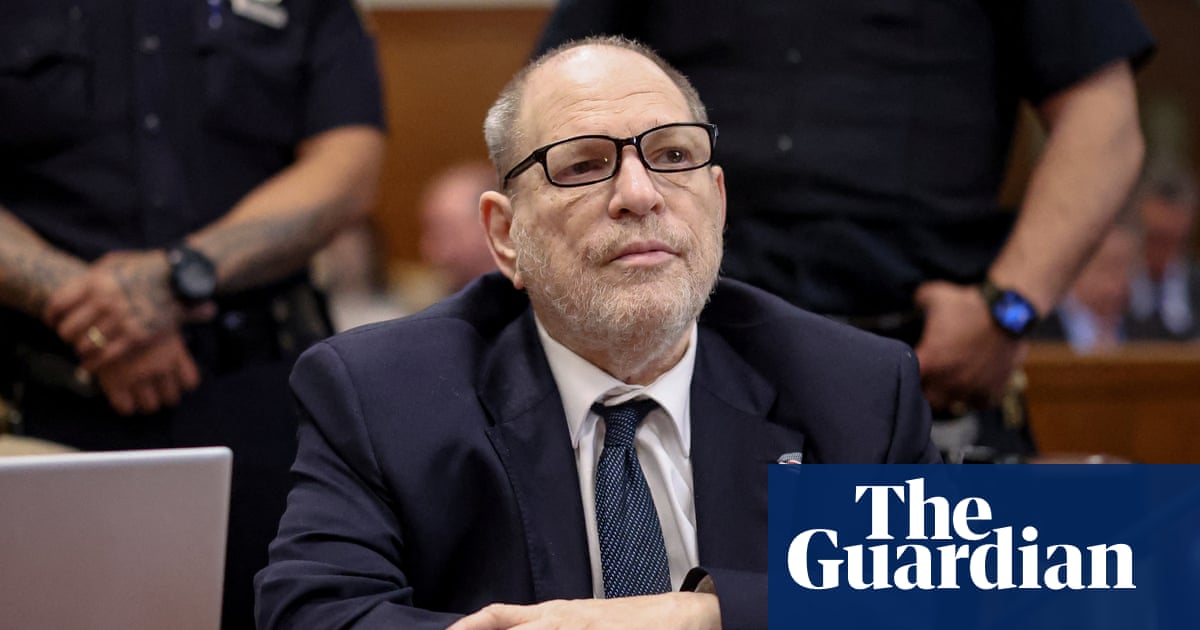A former model has told a New York court that disgraced movie mogulHarvey Weinsteinsexually assaulted her when she was 16 years old, calling it the most “horrifying thing I ever experienced.”
Kaja Sokola told jurors at Weinstein’s retrial that he put his hand inside her underwear and made her touch his genitals at his Manhattan apartment in 2002 when she was 16.
Sokola testified that Weinstein had told her that actors had to be comfortable disrobing in the film business and directed her to undress, “so I should get used to it”.
She testified that she took off her blouse and followed him into a bathroom because, she said, “I was 16 years old, and I was alone with a man for the first time, and I didn’t know what else to do.”
“I was scared. I was scared of him,” she continued. “I’d never been in an intimate situation with another person like that.”
Sokola described Weinstein’s eyes as appearing “black and scary” during the alleged assault and that he had afterwards told her to keep quiet, boasting he’d made Hollywood careers and could help her acting dreams come true.
Sokola, the second accuser to testify at the trial in Manhattan, said from the stand that four years later – in 2006 – the defendant lured her into a hotel room and forcibly performed oral sex on her.
The Polish model said Weinstein invited her to see some movie scripts but instead pushed her on to a bed. “I kept saying, ‘Please don’t, please stop, I don’t want this,’” she told jurors. “But he didn’t listen.”
Sokola testified that Weinstein, 73, pinned her to the bed with his body and removed her shoes, underwear and stockings. He then allegedly forced his mouth on to her vagina while he masturbated.
“My soul was removed from me,” Sokola said. “It felt like I was dead.” At the end of the approximately 15-minute encounter, Weinstein allegedly said: “You see, that wasn’t so difficult.”
Sokola’s 2006 alleged encounter forms a new accusation in Weinstein’s criminal retrial and the only alleged crime not included in his original trial in 2020 that was later thrown out by an appeals court on grounds that prosecutors had used “Molineux” witnesses, or testimony not related to the crimes as charged..
Jurors have alreadyheard fromformer Project Runway production assistant Miriam Haley, 48, who testified that Weinstein forcibly performed oral sex on her in July 2006. Another accuser, Jessica Mann, is also set to take the stand in support of accusations that Weinstein raped her in 2013.
Sign up toFirst Thing
Our US morning briefing breaks down the key stories of the day, telling you what’s happening and why it matters
after newsletter promotion
The defendant is charged with one count of engaging in a criminal sex act in connection with Haley’s allegations and one count of third-degree rape in Mann’s case. Weinstein has pleaded not guilty to all of the charges and denies sexually assaulting anyone.
Weinstein is already serving a 16-year sentence for a 2022 sexual-assault conviction in California. But that conviction, too, is being appealed on the same grounds that saw the firstNew Yorkcase overturned.
He is being transported to the court daily from Bellevue hospital after his defense teamfiled an emergency petitionlast month seeking to transfer him from Rikers Island because he is suffering from chronic myeloid leukemia, diabetes mellitus and “extensive” coronary artery disease.
Weinstein’s defence team has so far called for a mistrial on three separate occasions, each denied by presiding judge Curtis Farber. The defendant is not charged with first-degree rape and predatory sexual assault – claims that failed in 2020 – because of double-jeopardy protections. The case continues.
Information and support for anyone affected by rape or sexual abuse issues is available from the following organizations. In the US, Rainn offers support on 800-656-4673. In the UK, Rape Crisis offers support on 0808 500 2222. In Australia, support is available at 1800Respect (1800 737 732). Other international helplines can be found at ibiblio.org/rcip/internl.html
